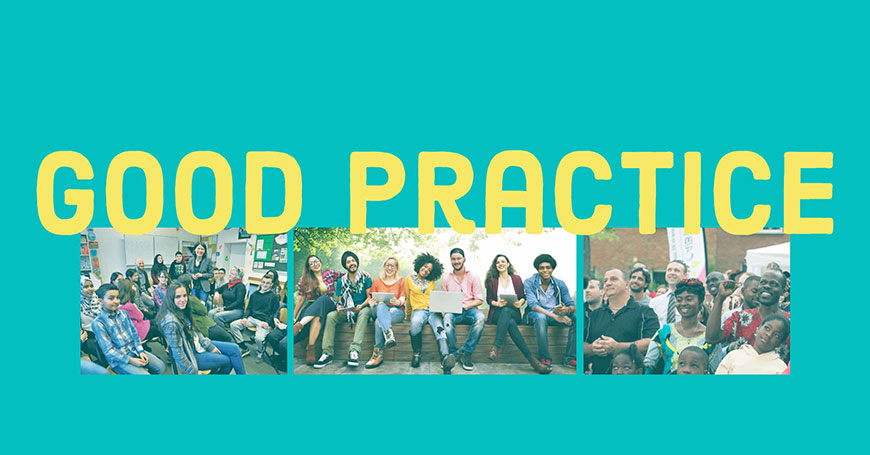Intercultural cities: good practice examples

The first step is the adoption (and implementation) of strategies that facilitate positive intercultural encounters and exchanges, and promote equal and active participation of residents and communities in the development of the city, thus responding to the needs of a diverse population. The Intercultural integration policy model is based on extensive research evidence, on a range of international legal instruments, and on the collective input of the cities member of the Intercultural Cities programme that share their good practice examples on how to better manage diversity, address possible conflicts, and benefit from the diversity advantage.
This section offers examples of intercultural approaches that facilitate the development and implementation of intercultural strategies.
Diversity-Day
Purpose: Promote diversity within organisations and societies Process: At the initiative of the Diversity Charter, “Diversity Day” was launched in 2013 and since then has taken place annually in...
Community – Police relationship
Mediation and conflict Resolution The goal of the programme is to increase the feeling of security among Haifa’s more vulnerable residents and neighbourhoods and to improve the police force’s...
Urban Parks
Purpose: Urban space creation for intercultural mixing (as a result of international cooperation) Stimulus/Rationale: Odesa joined the ICC-Ukraine network in 2017 but its policies have been always...


